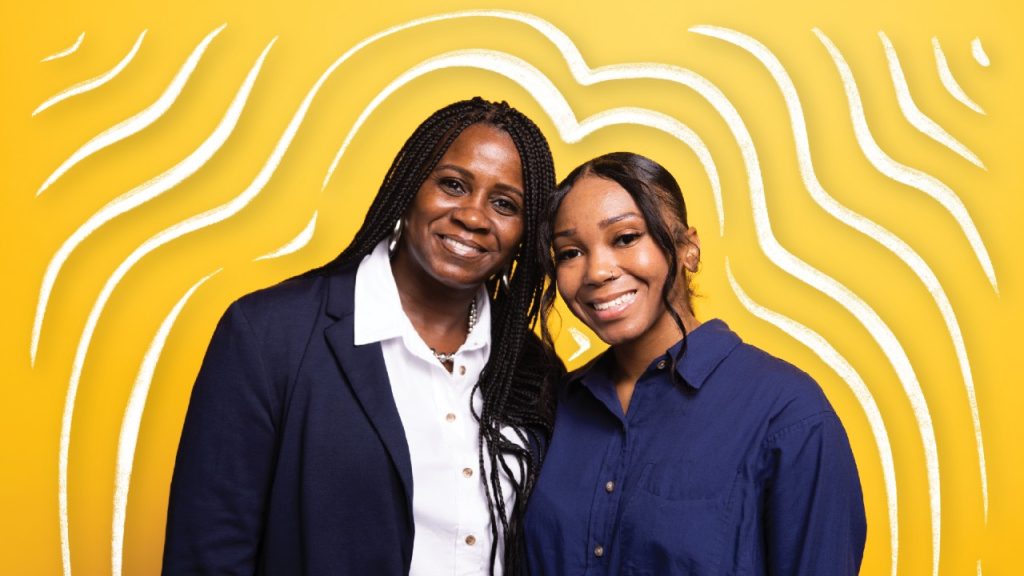
The Power of YES
A single donor has the potential to save 8 lives through organ donation and heal more than 75 through tissue donation. The ripple effect of one person saying ‘yes’ to donation is powerful. And that powerful decision is felt by recipients, family members, friends, colleagues and so many more.
We are thankful to each and every person who says “yes” to donation. With more than 103,000 men, women and children waiting for a life-saving transplant, they can feel powerless waiting for their donor hero. YOU have the power to help others in need.
While the need for registered donors is great, we do want to pause to thank our donor heroes. In 2023, heroic donors gave in an unprecedented manner, which resulted in saving and healing more lives than ever before!
LifeCenter worked closely with donor families and transplant centers to ensure every opportunity for donation was maximized to save the greatest number of lives.
LEARN THE POWERFUL TRUTHS ABOUT DONATION
There is a lot of misinformation about donation which creates distrust and opposition. The Powerful Truths Campaign is LifeCenter Organ Donor Network’s commitment to educating our communities on the truth around organ, eye and tissue donation. Knowledge is key. Educate yourself about these powerful truths and take a proactive role in your health and the health of your community.
Stats
Statistics have shown that a new name is added to the national waiting list every 10 minutes.
Currently, there are 103,327 people waiting for a vital organ transplant on the national waiting list.
One organ donor can potentially save eight lives.
One tissue donor can change and heal the lives of more than 75 people.
An average of 17 men, women, and children die each day waiting for an organ transplant.
In the Greater Cincinnati area, 522 people are waiting for a life-saving transplant.
In Ohio, 2,679 people are waiting for an organ transplant, and hundreds more await tissue transplants.
In Kentucky, 1,016 people are waiting for an organ transplant.
In Indiana, 1,305 people are waiting for an organ transplant.
Total kidney transplants exceeded 25,000 for the first year ever in 2022.
In 2022, a record breaking, 42,800 life-saving organ transplants were performed in the U.S., thanks to the generosity of donors.
More than 90% of American adults approve of donation as a viable, life-giving practice.
In 2022, there were 6,468 living donors who gave the gift of life to someone else.
Truth
Truth
Truth
Truth
Truth
Truth
Truth
Truth
Truth
Truth
Truth
Truth
Frequently Asked Questions
Donors save, heal, and change lives! There is a great need in the United States for life-saving and life-healing transplants.
Everyone should consider themselves a potential organ, eye and tissue donor. Medical conditions at the time of death will determine what organs and tissues can be donated.
You can designate your decision the next time you visit your local driver’s license agency.
You can also designate your intent to be an organ, eye and tissue donor in your state donor registry (Ohio, Kentucky and Indiana residents) or nationally through Donate Life America’s National Donate Life Registry at registerme.org. We also ask that you share your donation decision with your family members and loved ones, so in the event you become a donor, they are not surprised by the decision you made during what will be a difficult time.
Yes, State law recognizes driver’s licenses as legal authorization for organ, tissue and eye donation. Ohio, Kentucky and Indiana law allow an individual to designate his or her intent to be an organ, tissue or eye donor via a donor registry. Donor registries provide that a valid declaration of a gift of organs, tissues or eyes made prior to an individual’s death prevails over any contrary desires of the donor’s family.
15-17 year olds can register their intent to be organ, eye and tissue donors through their state registry or the National Donate Registry, but until they are 18 years old, a parent or legal guardian makes the final donation decision. We encourage 15-17 year olds, and everyone, to talk to their family about their decision to register.
Yes. A legally responsible adult must witness your signature on a driver’s license or state ID card.
- Organs: heart, kidneys, pancreas, lungs, liver, and small intestines.
- Tissues: cornea, skin, bone, heart valves, ligaments, tendons, veins, arteries, fascia.
No! The National Organ Transplant Act makes it illegal to sell human organs and tissues (Public Law 98-507).
Patients are matched to organs based on a number of factors including blood and tissue typing, medical urgency, time on the waiting list and geographic location. Factors such as race, gender, age, income or celebrity status are never considered when determining who receives an organ.
We encourage people who wish to be a donor to designate their decision. Don’t be deterred by past medical history or age because medical suitability for donation will be determined at the time of death. Anyone can register as a donor regardless of age or illness.
No! Organ donation does not discriminate against sexual orientation. Anyone, regardless of sexual orientation, can be an organ donor, both living and deceased.
Talking to your family about your decision to be an organ, eye and tissue donor and educating them about the facts of donation and transplantation are important steps to ensure that your family is comfortable with your decision.


